If you're considering terminating your property management agreement, it's essential to approach the situation thoughtfully and professionally. In this article, we will guide you through the key steps and best practices to ensure a smooth transition. From understanding your rights to crafting an effective termination letter, we've got you covered. So, let's dive in and equip you with everything you need to make this process as seamless as possible!
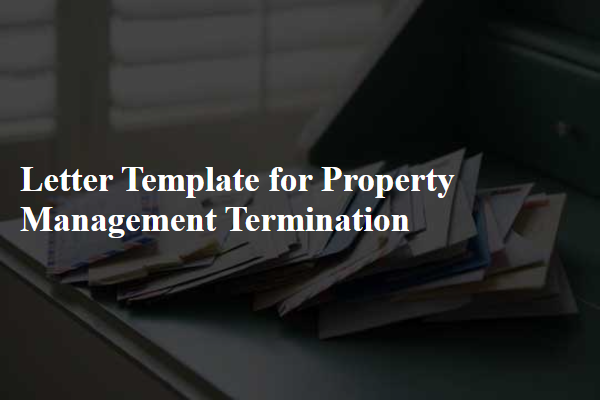
Clear and concise subject line
Property Management Termination Notice: [Property Address] This termination notice proceeds effective immediately for property management services at [Property Address]. The reason for termination includes unsatisfactory performance and failure to meet contractual obligations. The property manager, [Manager's Name], has been notified of this decision. All lease agreements, tenant communications, and financial documents must be transferred to the new management team by [Transfer Deadline]. It is essential to ensure a smooth transition for tenants at [Property Address] and maintain compliance with local housing regulations.
Proper salutation
Property management termination requires careful communication to ensure clarity and professionalism. A proper introduction should include the property owner's name (such as John Smith), the management company (including company name and address), and relevant dates (the termination date often specified). Make sure to state the intent clearly, emphasizing the end of services as of a specified date. A brief summary of reasons might include unsatisfactory service, financial disputes, or personal circumstances. A request for the return of any documentation and final accounting should also be clear, establishing expectations for a seamless transition.
Statement of termination intention
A property management termination statement outlines the desire to end a contract or agreement related to real estate management services. This statement should include specific details such as the property address (for example, 123 Maple Street, Springfield), the name of the property management company (e.g., XYZ Property Management), the date of the notice (such as October 1, 2023), and any relevant contract terms or laws governing the termination. The document might also specify the intended termination date, allowing the management company time to conclude their duties, and may include reasons for termination, such as unsatisfactory performance or a change in ownership. It is important to clearly indicate the contact information for follow-up or to clarify any remaining obligations between the parties involved.
Reference to agreement/contract terms
To terminate a property management agreement effectively, it is essential to reference the specific terms outlined in the contract. A detailed understanding of clauses related to notice periods, obligations, and any penalties for early termination is crucial. Property management agreements, typically bound by state-defined legal frameworks, often stipulate a notice period of 30 to 60 days prior to termination. It's important to document the reason for termination clearly, ensuring compliance with every condition stated in the agreement. This protection not only facilitates a smooth transition but also mitigates disputes or legal repercussions that may arise from misunderstandings regarding the contract's terms. Ending the relationship professionally enhances the prospects for future engagements or referrals within the property management industry.
Requested timeline and next steps
Property management termination requires a structured approach to ensure a smooth transition. A well-defined timeline can help both parties navigate key dates. Typically, a notice period of 30 days is standard for most property management agreements, allowing adequate time for property managers to fulfill outstanding obligations. During this period, both parties should prepare for the transition; the property owner must begin searching for a new management company or consider self-management, while the outgoing manager finalizes their accounts and thoroughly documents the property's condition. Additionally, updating tenants regarding the changes in management is crucial to maintain communication. Failing to adhere to the specific terms outlined in the original agreements can lead to misunderstandings, reflected in the security deposits or potential fees. Finally, setting a final walkthrough and review of the property's status, along with the return of keys and access fobs, should be prioritized to ensure everything is accounted for as the transition completes.

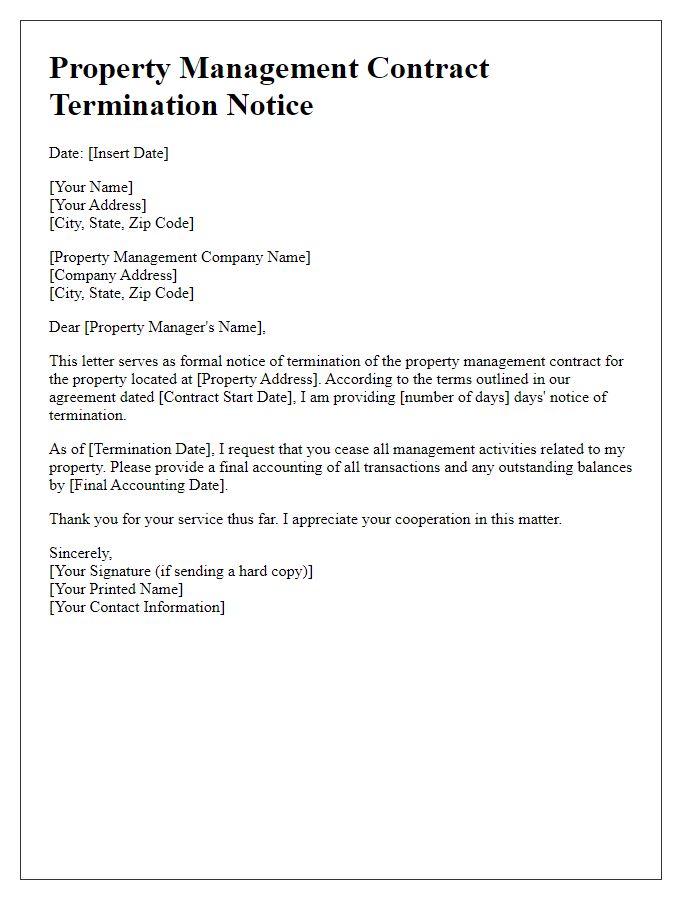
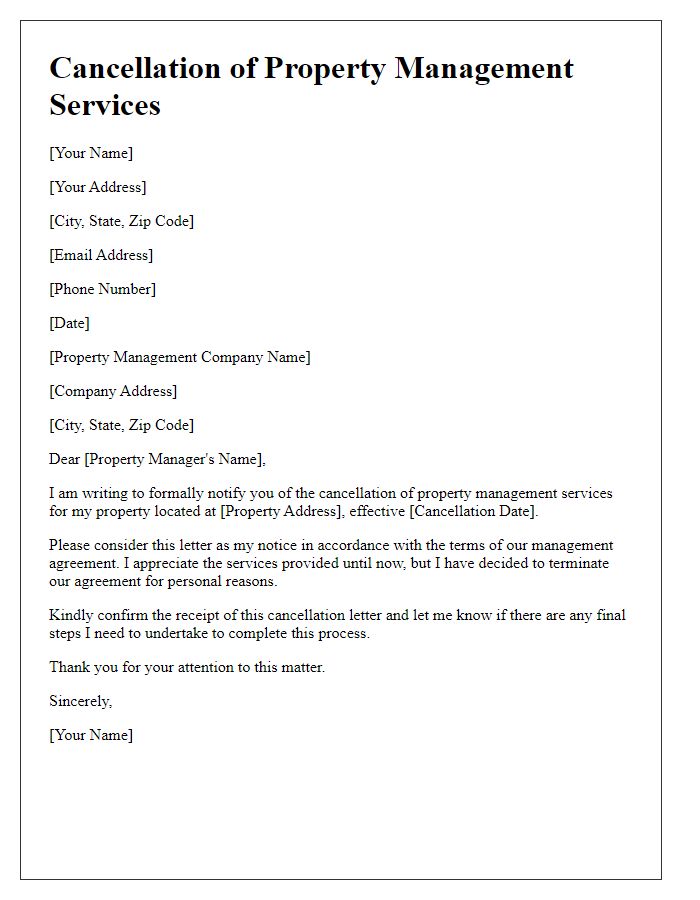
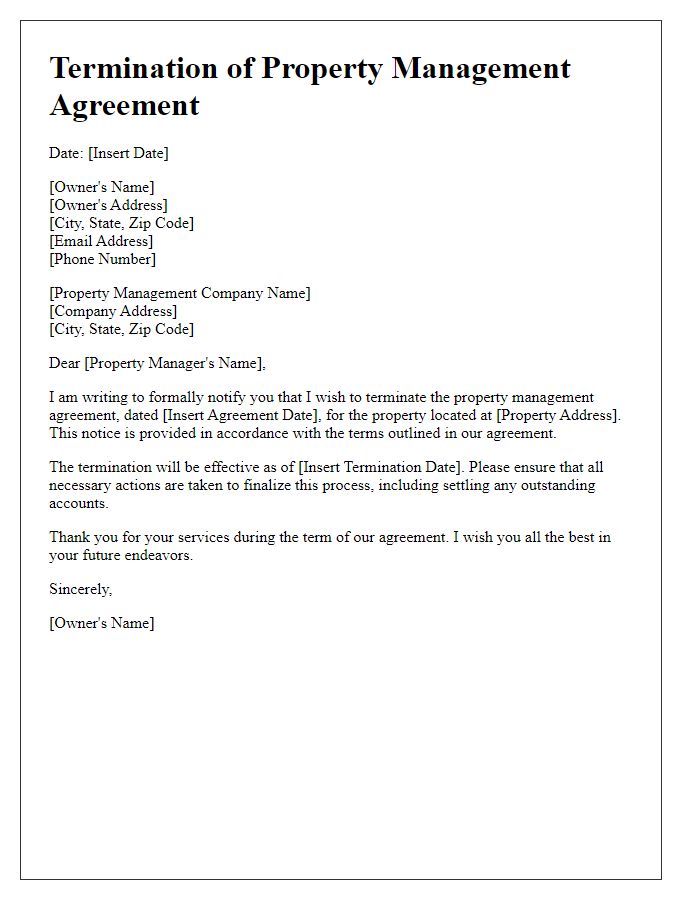
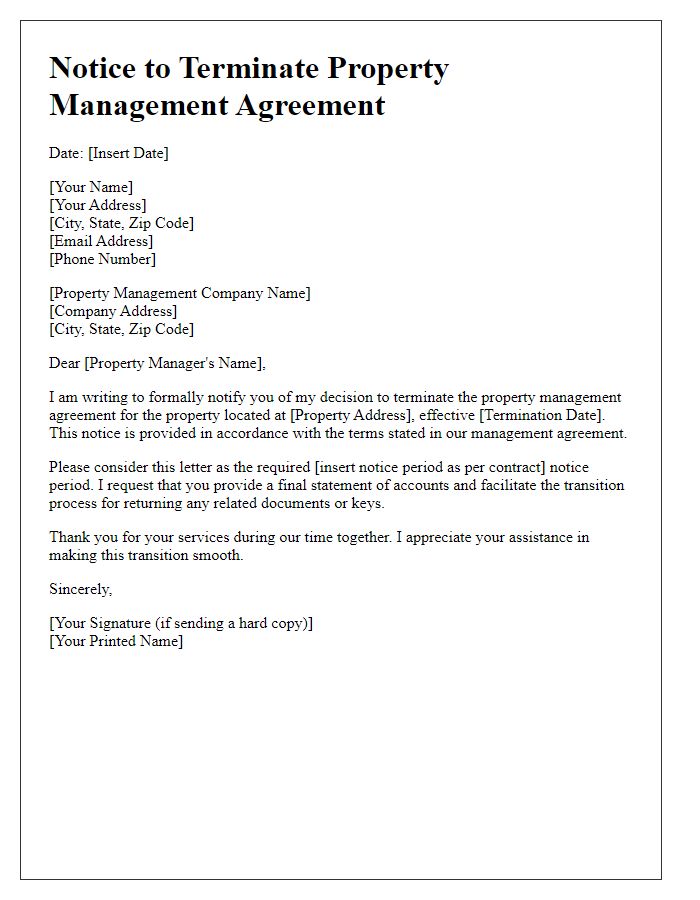
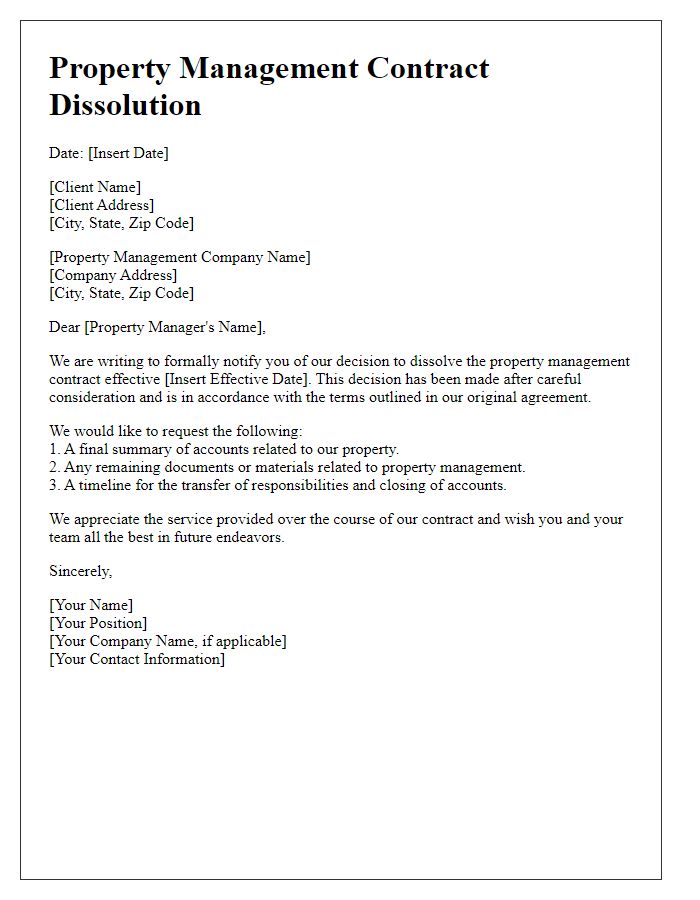
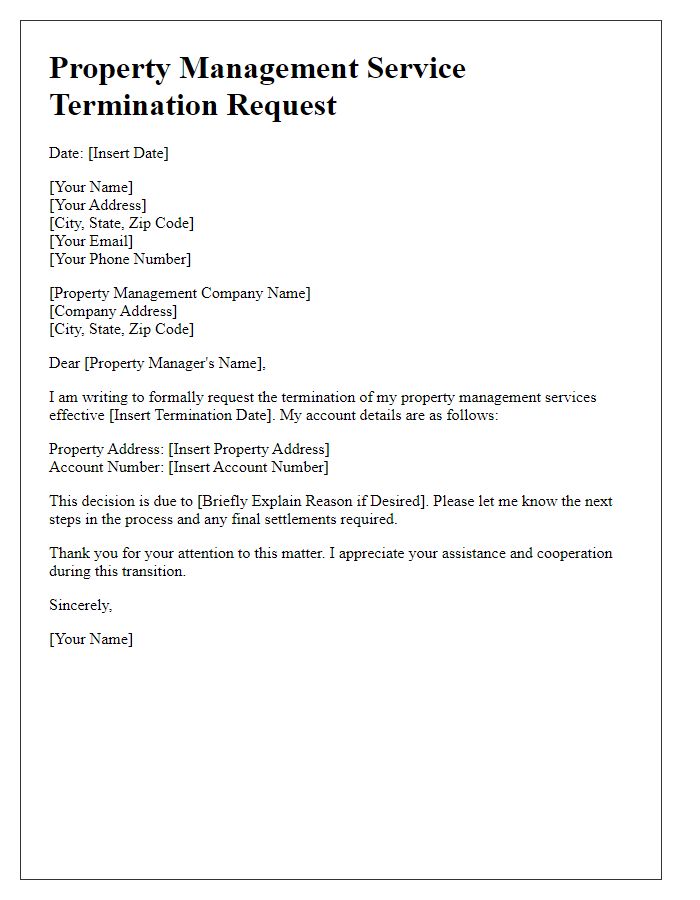
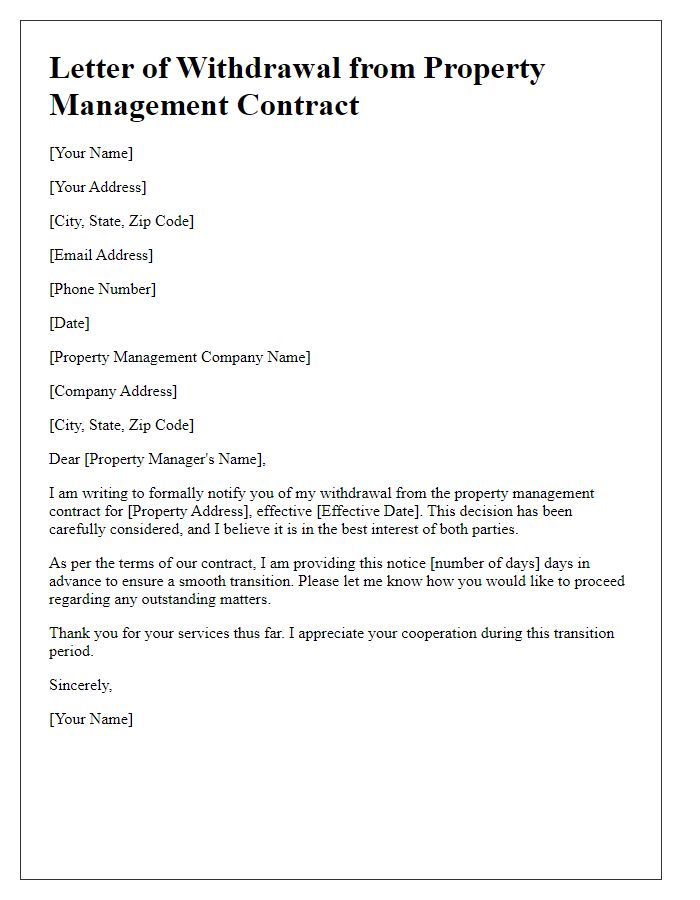
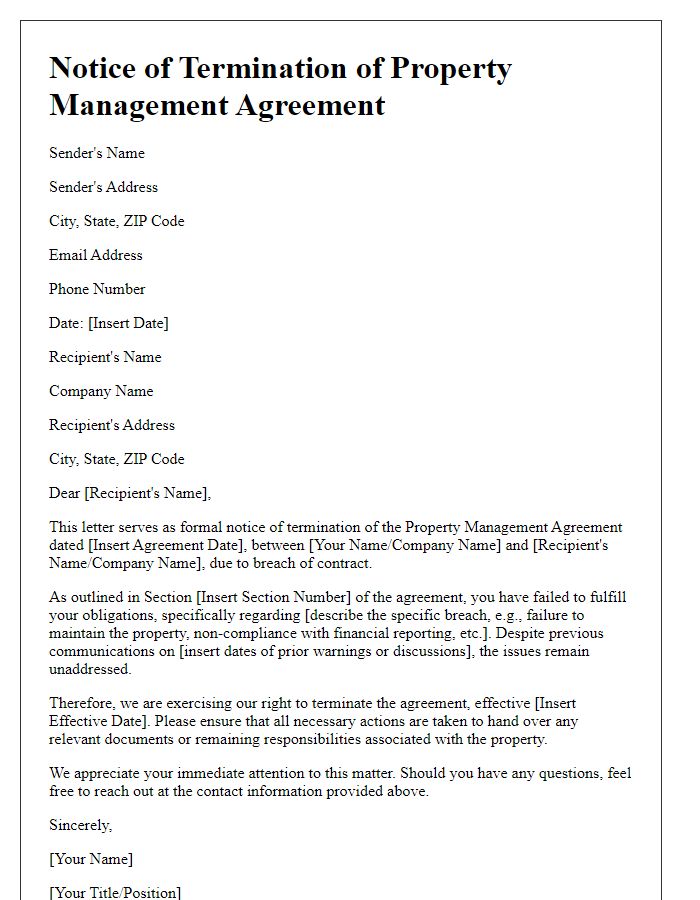
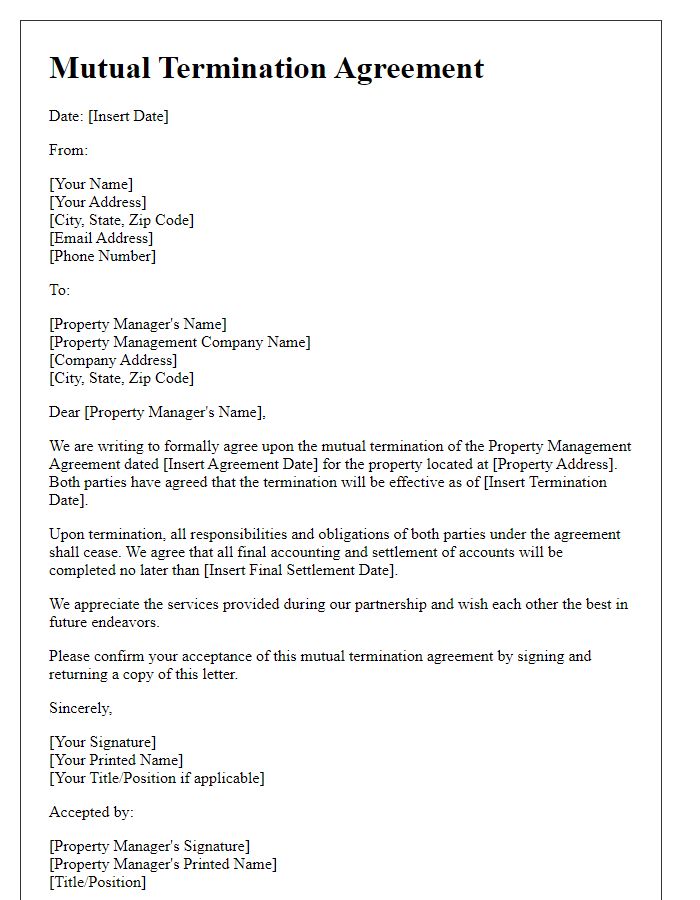
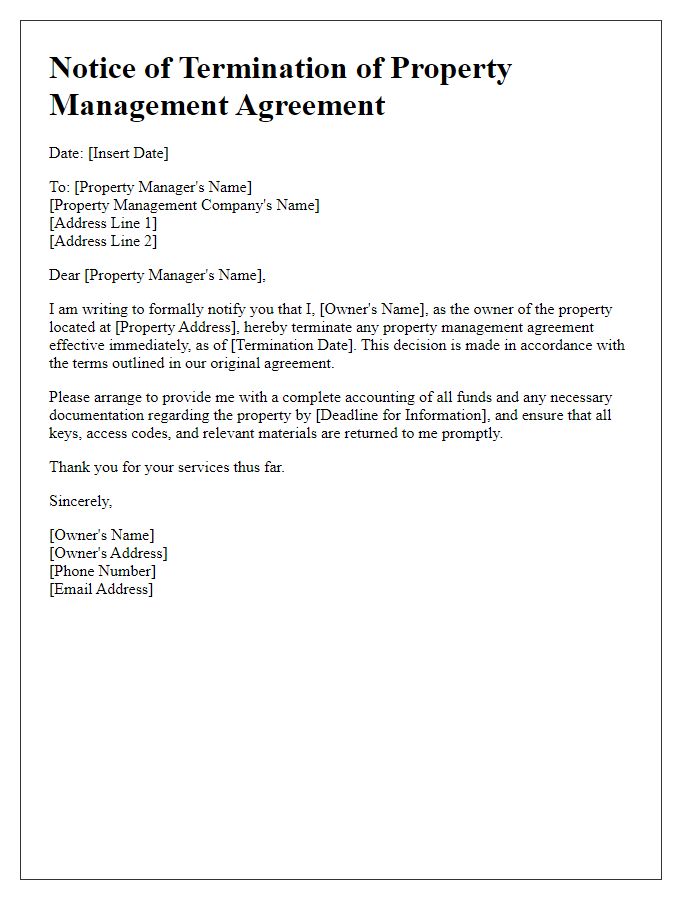


Comments